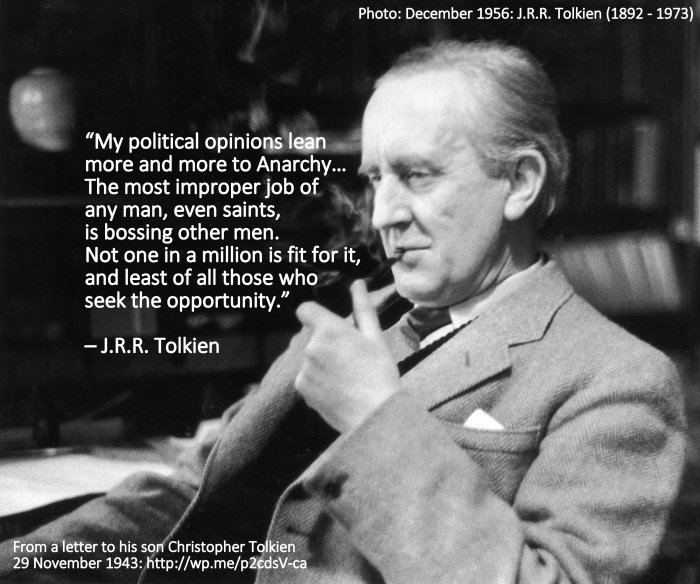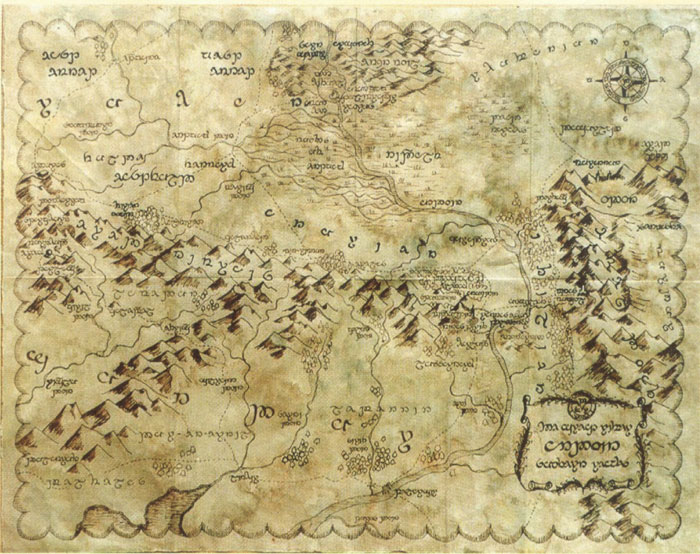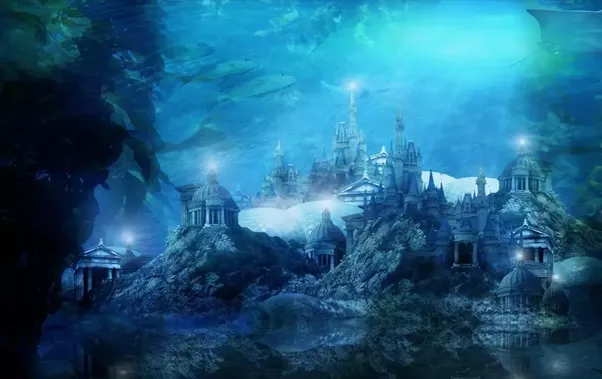
"The trouble with the real folk of Faërie is that they do not always look like what they are; and
they put on the pride and beauty that we would fain wear ourselves. At least part of the magic that they wield for the good or
evil of man is power to play on the desires of his body and his heart."
"In Faërian drama you are in a dream that some other mind is weaving, and the knowledge of that alarming fact may slip from your
grasp."
"To us evil and ugliness seem indissolubly allied. We find it difficult to conceive of evil and beauty together. The fear of the
beautiful fay that ran through the elder ages almost eludes our grasp. Even more alarming: goodness is itself bereft of its proper
beauty."
"There are a few men who are privileged to travel abroad a little; others must be content with travellers' tales."
From On Fairy-Stories, 1939
"People in this land seem not even yet to realize that in the Germans we have enemies whose virtues
(and they are virtues) of obedience and patriotism are greater than our in the mass. [...] And who are — under the curse of
God — now led by a man inspired by a mad, whirlwind, devil [...] ruining, perverting, misapplying, and making for ever
accursed, that noble northern spirit, a supreme contribution to Europe."
From a letter to son Michael Hilary, 9 June 1941
"If we try to ascend straightaway to a rational plane, and leave behind mere anger with anyone who
interferes with our habits (good or bad), the answer is: because the Mohammedans would be guilty of injustice. They would be
injuring us by depriving us of our share in a universal human right, the temperate use of wine, against our will. You
made that quite clear in your remarks about Temperance, p. 13."
From a letter-draft to C. S. Lewis, 1943 (The Letters of J. R. R. Tolkien, p. 60)

"I must admit that I smiled a kind of sickly smile and 'nearly curled up on the floor, and the
subsequent proceedings interested me no more', when I heard of that bloodthirsty old murderer Josef Stalin inviting all nations
to join a happy family of folks devoted to the abolition of tyranny & intolerance!"
From a letter to son Christopher, 9 December 1943
"One doesn't altogether wonder at a few smaller states still wanting to be 'neutral'; they are
between the devil and the deep sea all right. [...] I should have hated the Roman Empire in its day (as I do), and remained a
patriotic Roman citizen, while preferring a free Gaul and seeing good in Carthaginians."
From a letter to son Christopher, 31 July 1944
"The galleys are proving rather a bore! There seem such an endless lot of them."
"I let off my irritation in a snorter to A. and U. which produced a grovel."
From a letter to son Christopher, 4 August 1953
"Still I think there will be a 'millennium', the prophesied thousand-year rule of the
Saints, i.e. those who have for all their imperfections never finally bowed heart and will to the world or the evil spirit
(in modern but not universal terms: mechanism, 'scientific' materialism, Socialism in either of its factions now at war)."
From a letter to son Christopher, 30 January 1945
"Dragons. They had not stopped; since they were active in far later times, close to our own.
Have I said anything to suggest the final ending of dragons? If so it should be altered. [...] I think, that there are still
dragons, if not of full primeval stature . . ."
From a letter to Naomi Mitchison, 25 April 1954
"If you want to write a tale of this sort you must consult your roots, and a man of the North-west
of the Old World will set his heart and the action of his tale in an imaginary world of that air, and that situation: with the
Shoreless Sea of his innumerable ancestors to the West, and the endless lands (out of which enemies mostly come) to the East.
His heart may remember, even if cut off from all oral tradition, the rumour all along the coasts of the Men out of the Sea."
From a letter to W. H. Auden, 7 June 1955

"The quest had as its object not the preserving of this or that policy, such as the
half republic half aristocracy of the Shire, but the liberation from an evil tyranny of all the 'humane' — including those,
such as 'easterlings' and Haradrim, that were still servants of the tyranny."
"Even if in desperation 'the West' had bred or hired hordes of orcs and had cruelly ravaged the lands of other Men as allies of
Sauron, or merely to prevent them from aiding him, their Cause would have remained indefeasibly right. As does the Cause of those
who oppose now the State-God and Marshal This or That as its High Priest, even if it is true (as it unfortunately is) that many
of their deeds are wrong, even if it were true (as it is not) that the inhabitants of 'The West', except for a minority of
wealthy bosses, live in fear and squalor, while the worshippers of the State-God live in peace and abundance . . ."
Notes on W. H. Auden's review of The Return of the King (The Letters of J. R. R. Tolkien, pp. 238, 244)
"Welsh still survives on earth, and so possibly elsewhere also; and a prudent Englishman will
use such opportunities for speech as remain to him."
"Even as Gildas accuses the surviving British princes of warring with one another rather
than with the enemy, so the kings of small English realms at once began to do the same. In such
circumstances sentiments of language against language, Roman against barbarian, or Christendom
against heathendom will not outweigh the need for communication."
"Unheeded language without pride or sense of ancestry may change quickly in new circumstances."
"Perhaps I might say just this — for it is not an analysis of Welsh, or of myself, that I am
attempting, but an assertion of a feeling of pleasure, and of satisfaction (as of a want fulfilled). [...] This pleasure is felt
most immediately and acutely in the moment of association: that is in the reception (or imagination) of a word-form which is felt
to have a certain style, and the attribution to it of a meaning . . ."
In his essay English and Welsh (Tolkien's inaugural O'Donnell Memorial Lecture of 1955)
"I am not a 'democrat' only because 'humility' and equality are spiritual principles corrupted
by the attempt to mechanize and formalize them, with the result that we get not universal smallness and humility, but universal
greatness and pride, till some Orc gets hold of a ring of power – and then we get and are getting slavery."
From a letter-draft to Joanna de Bortadano, April 1956
"There exists the possibility of being placed in positions beyond one's power."
"One must face the fact: the power of Evil in the world is not finally resistible by incarnate
creatures, however 'good'; and the Writer of the Story is not one of us."
From a letter-draft to Miss J. Burn, 26 July 1956
"I have often used Westernesse as a translation. This is derived from rare Middle English
Westernesse where the meaning is vague, but may be taken to mean 'Western Lands' as distinct from the East inhabited by
the Paynim and Saracens."
From a letter to Dick Plotz, 12 September 1965
"The action of the story takes place in the North-west of 'Middle-earth', equivalent in latitude to
the coastlands of Europe and the north shores of the Mediterranean. But this is not a purely 'Nordic' area in any sense. If
Hobbiton and Rivendell are taken (as intended) to be at about the latitude of Oxford, then
Minas Tirith, 600 miles south, is at about the latitude of Florence. The Mouths of Anduin and the ancient city of Pelargir are
at about the latitude of ancient Troy."
From a letter to Charlotte and Denis Plimmer, 8 February 1967
"... amusement with arithmetic: the Númenórean calendar was just a bit better than the Gregorian."
From a letter to Naomi Mitchison, 8 December 1955





